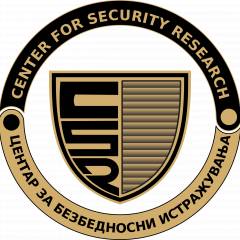By Aleksandar Nacev, Executive Director of the Center for Security Research

At the North Atlantic Treaty Organization (NATO) Meeting of Heads of State and Government in London in December 2019, Alliance leaders asked the NATO Secretary General Jens Stoltenberg to undertake a Forward-Looking Reflection Process to assess ways to strengthen the political dimension of the NATO Alliance. To this end, in April 2020, Secretary General Stoltenberg appointed an independent Reflection Group, and tasked the Group with providing recommendations in several areas that are crucial to NATO and its essence.
After extensive consultations within and outside NATO, including with scholars, leaders from business and the technology sector, parliamentarians, military officials, and government representatives from all thirty Allies, most NATO partner states, and numerous international Organizations, the Group presented its final report, titled NATO 2030: United for a new era, to the Secretary General.
Some of the biggest headlines out of NATO 2030 were centered on China, a country the alliance did not even formally discuss until last year. “Russia will remain the primary military threat to NATO for the foreseeable future,” a co-chair of the expert group, former US diplomat Wess Mitchell, said in a discussion on the report, but the “rise of China is the single biggest, most consequential change in NATO’s strategic environment and one that the alliance really has to reckon with.” The group urges the Alliance to “devote much more time, political resources and action to the security challenges posed by China.”
In an interview with Politico, in December 2020, regarding the China issue, Stoltenberg said “We all realise that the global balance of power is changing in a fundamental way. The rise of China is really changing the security environment we face” and continued his thought with the warning that Beijing did not only have the world’s second-largest defence budget but was also “investing heavily in new capabilities, including nuclear weapons, missiles, new technologies.”
On the NATO-China relation, he commented “If anything, the size of China — the military size, the economic size, their achievements in technology — all of that makes NATO even more important. No single ally, not even the United States, can address this alone.” Stoltenberg also said that the military alliance should reach out to other countries that are confronted with China’s rise, naming Japan, South Korea, Australia and New Zealand.
Furthermore, at the end of 2020, NATO foreign ministers approved the first-ever assessment of China-NATO relations, which still remains classified.
So, when the leaders of the 30 NATO countries meet for their summit in Brussels in a few months, they will find a very interesting and complex issue on the agenda, and that is NATO’s future.
It will also be the first major international summit for US President Joe Biden, who has said that strengthening alliances will be a priority of his foreign policy. The decisions reached at this meeting will determine NATO’s plans and priorities for a long time to come, including NATO’s future policy towards China.
*This article was originally published for Conservatives Global.



